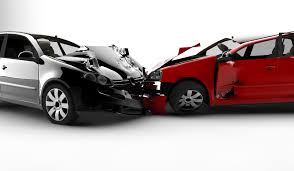
Let's face it: Auto insurance can be complicated. Most states require you to have at least some coverage Most states require you to have at least some coverage (typically a certain amount of liability), but then there’s a whole slew of other coverages to consider, too – bodily injury, comprehensive, collision, roadside assistance.
Then there’s uninsured motorist coverage and under-insured motorist coverage
.
In my experience, these are the most misunderstood auto insurance coverages of all. However, they can make a big difference in some key situations.
Why You May Need Uninsured Motorist or Under-insured Motorist Coverage
- Another driver causes an accident, damaging your vehicle and perhaps injuring you, but doesn’t carry any insurance coverage.
- The driver responsible for the accident doesn’t carry enough insurance to pay for all of the damage you incur. Hence the driver’s insurance may pay for some of your car repair and medical costs but not all of them.
- The at-fault driver has insurance, but the carrier is financially unable to pay the claim.
- You’re involved in a hit-and-run accident (state laws vary here).
So, you see, uninsured motorist and under-insured motorist coverage can come to your aid in many instances. Yet, given the chance, many drivers still bypass the coverage, and their reasons for doing so are oftentimes based on some common misconceptions. So, let’s clear those up.
Misconception 1
“Uninsured motorist and/or under-insured motorist coverage will make my car insurance too expensive.”
Yes, you will save money by not purchasing these coverages. But, for how long? If you encounter one of the above scenarios and find yourself paying for medical bills and car repairs out of your own pocket, you’re no longer saving money. If it’s a serious accident, your costs could be catastrophic.
Misconception 2
“I have health insurance, so I don’t need uninsured or under-insured motorist coverage.”
Great – it’s important to have health insurance. But, will it pay for lost wages and long-term care stemming from an auto accident? Likely not. In fact, your carrier may prohibit your health insurance from being used as primary coverage in the case of an auto accident. If so, you may need to first exhaust your auto insurance coverage before you’re eligible for benefits from your health insurer. Your health insurance deductible is also something to consider. If it’s high, you could elect to pay your auto deductible and use your uninsured motorist or under-insured motorist coverage, when applicable, instead.
Misconception 3
“I don’t want to be over-insured. I’ll just purchase the minimum car insurance my state requires.”
When you follow state requirements for purchasing car insurance, you typically end up only buying coverage to pay for other people’s injuries and car repairs, not your own. So, in many instances, only buying the minimum can leave you under-insured.
Misconception 4
“I live in a no-fault state, so my own car insurance will pay for my repairs and medical costs.”
This is typically true, assuming you bought the needed coverages and enough of them. In a no-fault state, no matter who causes the accident, a driver’s own insurance usually takes care of the necessary repairs and medical treatments, up to the policy limits. However, even in a no-fault state, uninsured or under-insured motorist coverage could come in handy for such costs as lost wages.
Misconception 5
“If the other driver is at-fault, I can rely on his/her insurance carrier to cover my costs.”
Ideally, yes. Unless you live in a no-fault state or you’re involved in one of the four scenarios outlined above. Then you may only have your insurance to rely on. That’s why it’s important to make sure it’s enough. I hope by now you have a better understanding of why you may or may not want uninsured motorist or under-insured motorist coverage on your auto policy. Depending on your state, uninsured motorist coverage could be required, optional or not even offered. Under-insured motorist coverage typically is not required. Remember,, AJ, can provide valuable insight into what coverages your state requires and what optional coverages may help you feel more confident when you’re out on the road